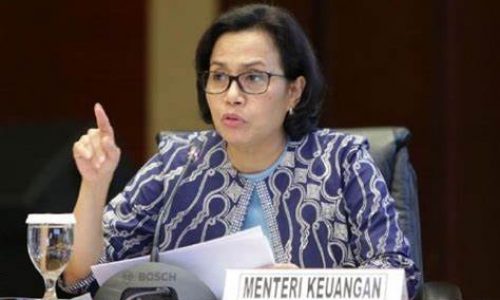Real estate business is a type of business whose activities are trading land and buildings or whatever is on it. Real estate business is a type of business that has great long-term potential. Real Estate business developments always follow the economic and demographic growth of a region or country. Along with the rapid growth of new cities in various regions, especially around the centers of economic and industrial growth, the need for new development becomes very important for the government, and of course presents challenges for the private sector.
Land ownership and tenure in Indonesia
- Freehold title (Hak Milik/HM), the strongest right in Indonesian land that cannot be contested; only owned by an Indonesian citizen and certain bodies with social or religious functions (churches, mosques, foundations), and without a period of time and without renewal of the term.
- Right to Build (Hak Guna Bangunan/HGB)), the right to land that gives the right to use and own the building; can be owned by an Indonesian citizen and an Indonesian legal entity because it adheres to the concept of state-owned land, and has a maximum term of 30 years, can be extended for 20 years, and can be renewed for a maximum of 30 years (based on Government Regulation (PP) No. 18/2021) as long as all requirements have been met.
- Right to Cultivate (Hak Guna Usaha/HGU), intended for agriculture, plantation, fishery and/or animal husbandry; owned by Indonesian citizens and Indonesian legal entities with a maximum period of 35 years, can be extended for 25 years, and can be renewed for 35 years.
- Right of Use (Hak Pakai/HP), right of ownership and use of buildings, generally for embassies or representatives of foreign countries/agencies and valid forever (PP 40/1996) or valid for a maximum period of 30 years, can be extended for 20 years, and can be renewed for a maximum of 30 years . Right to Use has now become relevant again, not only for representatives of foreign countries.
- Management Rights, can be used by the government or regional administrations, BUMN (state-owned enterprises)/BUMD (region-owned enterprises), land banks and legal entities appointed by the government. HPL (right to manage) has no time period and can be revoked by the government. Given by the government to show certainty about land in the Copyright Act so that investors or people who want to do business in Indonesia have an alternative to their previous rights. The use of HPL can be overwritten with other land rights (HGB, HGU or HP) with a written contract that has been agreed.
- Ownership rights to Flats (Hak Milik atas Satuan Rumah Susun/HMSRS) are owned by Indonesian citizens, Indonesian legal entities, and foreigners who meet the requirements, or foreign representatives. HMSRS is HGB or HP which is divided into parts with rooms/units owned by individuals and shared parts (such as stairs and elevators, social facilities, and places of worship). HMSRS split horizontally as well as vertically, resulting in a proportional comparison value for an area. The term of the HMSRS follows the term of the joint land (such as HGB), with the obligation of the developer (first year) and the Association of Flat Owners and Occupants (PPPRS), which was appointed by the condominium owners to carry out the task of managing the flats. Foreigners’ ownership of HMSRS uses HP because it is not appropriate/not permitted by HGB to attract investors’ interest. The foreigner must provide benefits to Indonesia on condition of a residence permit and location, area, and a specified price.
- Rental Rights, not registered in Indonesia because the basis is a contract (contractual).
- Girik, land rights whose status does not yet have an official certificate or are not registered. Land ownership does not have a land certificate, but a girik certificate, which is proof of property tax (PBB), as well as a statement of land ownership signed by the village head or subdistrict head (formerly Land Titles Registrar (PPAT) in areas where there is no PPAT). Ownership of unregistered land is different from some common law countries that use the Torrens system (registration is guaranteed by the government and if it is incorrect and incorrect, then the government is responsible).
Real estate investment in Indonesia
- Formation of Investment Company (PMA)
Establishment by a PMA (foreign investment) company with regulated procedures and requirements such as the Indonesian Standard Classification of Business Fields; deed of establishment (AD/ART and NPWP); Bank account; approved by the Ministry of Law and Human Rights; and initial permits such as location permits/compatibility with space utilization, as well as obtaining a Business Identification Number.
- Takeover of an Investment Company (purchase of the company that owns the land)
There is no need to carry out the required procedures for establishing a new PMA, but directly buy the company that owns the desired land with fewer procedures. The procedure is newspaper announcements and written to employees, approved by the Ministry of Law and Human Rights, and getting a new NIB (business number). The takeover of the company also needs to transfer all right prior liabilities attached to the company and commercial considerations such as the structure of assets owned by the company, whether desired or not.
Stages of real estate transactions in Indonesia in general
- Letter of Intent
- Due Diligence
- Sale and Purchase Binding Agreement
- Eligibility
- Deed of sale & purchase
- Registration
Building Ownership
- Horizontal Separation Principle
- Depending on the agreement:
- Rent or Lease Use.
- Partnerships
- Build Operate Transfer (BOT)
- Build to Order (BTO)
- Build Handover
- Common Issues
- Status of the building at the end of the agreement period or early termination.
- Fees or compensation in early termination rights.
- Consent to be obtained from the land owner.
- Certificate of building ownership.
Real Estate Investment Fund (DIRE)
DIRE is a forum to raise public funds, which are then invested in real estate assets, assets related to Real Estate and/or cash and cash equivalents. DIRE invests in: a. Real Estate Assets (physical land and buildings on it) at least 50% of Net Asset Value (NAV); b. Real Estate Assets and Assets related to Real Estate in the territory of Indonesia (Securities of Real Estate Companies listed on the Stock Exchange and or issued by Real Estate Companies) of at least 80% of the NAV provided that investment in Real Estate Assets is at least 50% of the NAV ; and/or c. cash and cash equivalents of not more than 20% NAV. Real Estate Investment Trusts (REITs) are prohibited from investing in: a. vacant land; or b. property that is still under construction (excluding redecorating, retrofitting and renovation). DIRE may make a Public Offering or not conduct a Public Offering of its Participation Units. DIRE can list their Participation Units on the Stock Exchange.









